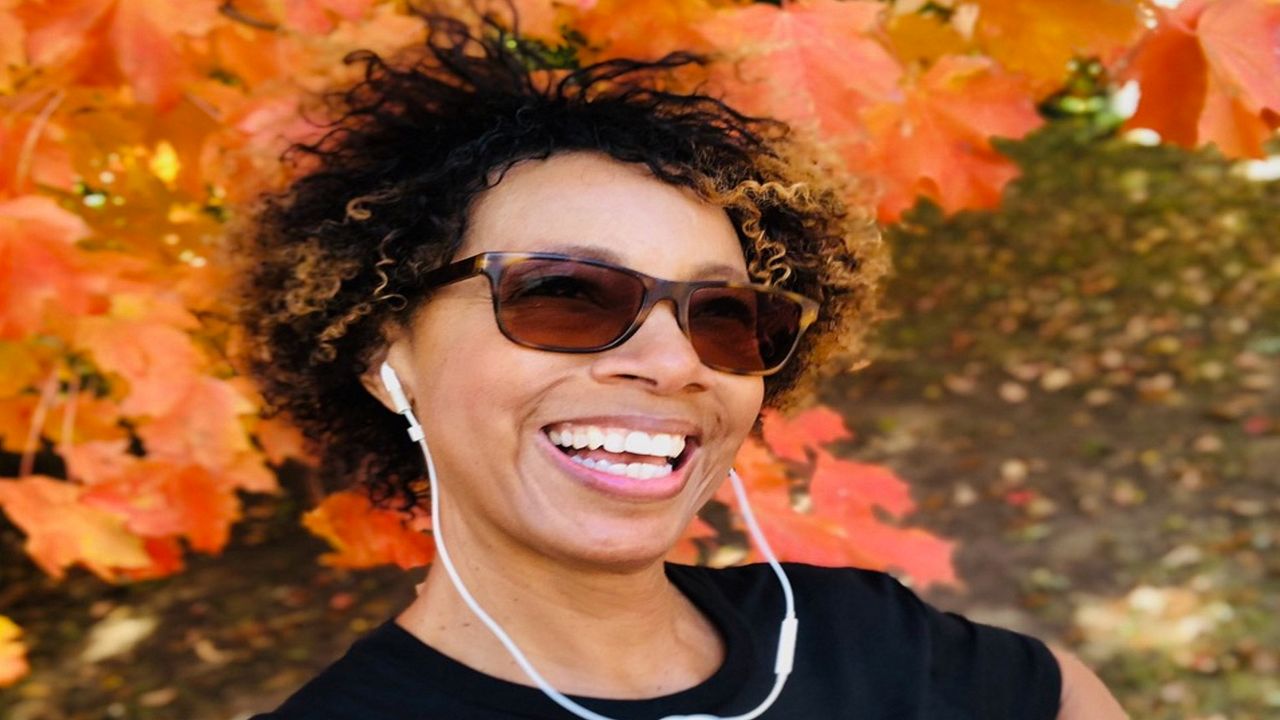CINCINNATI — Sherry Hughes describes herself as a person of faith and purpose.
What You Need To Know
- Sherry Hughes, a former TV meteorologist, received a breast cancer diagnosis in 2019
- She continued to work to share her story and raise awareness about the disease
- After going into remission, Hughes changed careers to become an advocate for cancer research and screening
- Medical officials credit Hughes' voice with helping to pass Ohio House Bill 371
The longtime meteorologist from South Carolina spent much of her adult life working at several television stations from Phoenix to Tampa over her more than 25-year career. She prided herself on helping to share vital information during emergencies, such as torrential storms and hurricanes.
After settling in at Cincinnati’s WCPO-TV in 2011, she became a regular at local programs and fundraisers for many organizations and nonprofits.
But her mission began to change on July 30, 2019, when doctors at UC Health diagnosed her with invasive ductile carcinoma, a form of breast cancer.
Hughes, who is now in remission, worked throughout her entire cancer treatment — six rounds of aggressive chemotherapy, a surgery, five-and-a-half weeks of radiation and more than a year of immunotherapy.
There were good days and days that were “a bit more taxing,” but if she could work, she was going to do it.
“It wasn’t easy,” Hughes said, “but I wanted to show people my circumstances so they could see a face of cancer and that life goes on even after a cancer diagnosis.”
‘I wanted to be an open book’
Hughes credits her husband, Myron Hughes — a former captain of the University of Cincinnati men’s basketball team — with being by her side throughout every treatment. She also thanked her friends, family, WCPO viewers and her social media followers for their endless support.
During her cancer treatments, Hughes took viewers of her weekend weathercasts and her social media posts on a step-by-step journey.
She cut her hair short before it fell out. While she wore a wig at times, she eventually decided to “ditch it” and stepped in front of the camera with no hair at all.
“I wanted to be an open book,” she said. “People were so gracious to show support for me, but they also saw me as a vehicle to share their stories.”
Hughes also used her experience to educate people about advocating for their own health and well-being.
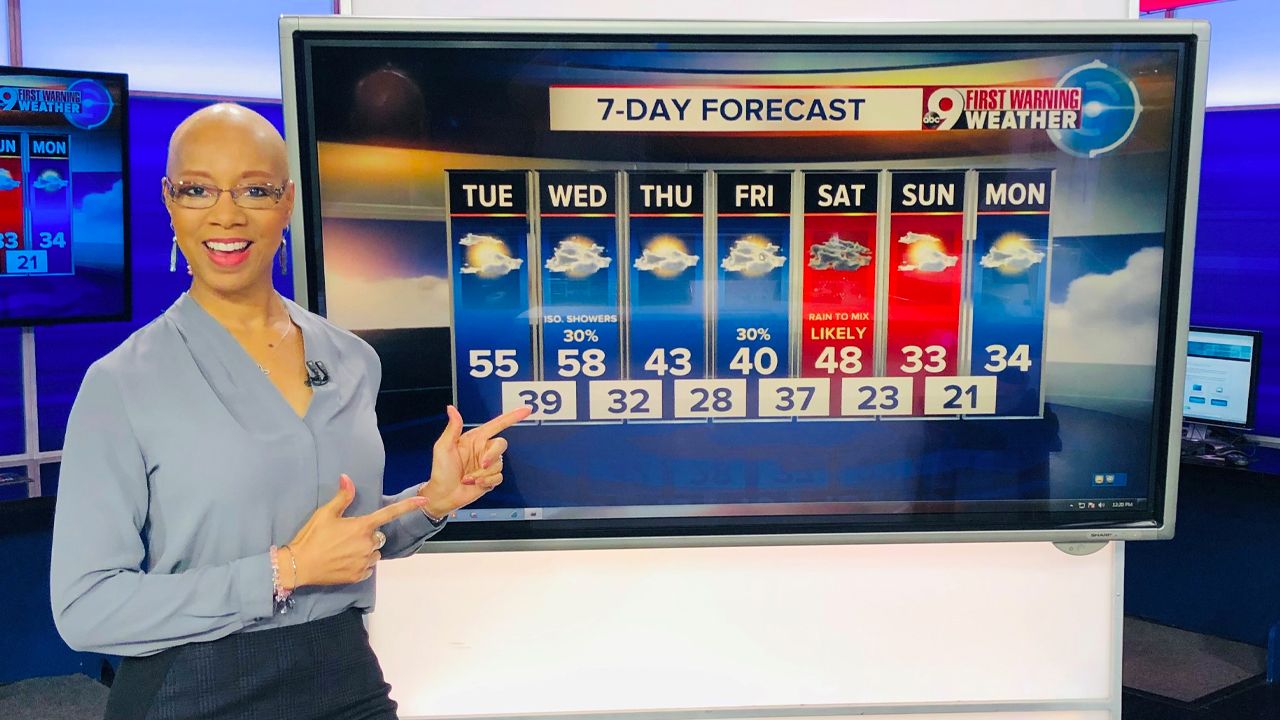
In her life, she did “everything she could” to guard against getting cancer. An avid runner and swimmer, Hughes exercised daily and lived a generally healthy lifestyle. That includes trying to eat “clean.”
Still, Hughes was no stranger to the ailment. Her mother, Lillie, received a breast cancer diagnosis back in 1990.
Lillie had a mastectomy and Hughes thought she’d be fine, but she passed away about a year later. Hughes later learned that the cancer metastasized and doctors found it in her liver.
“It was devastating,” said a tearful Hughes. “To this day, I wish I could have done more to help my mother.”
Hughes caught her cancer early — but it wasn’t easy. “It hid” from doctors.
She underwent regular health screenings, including receiving her annual preventative mammogram and doing self-examinations. She also had her DNA tested for BRCA genes, which can show a hereditary predisposition to breast cancer.
Nothing was found.
Hughes had no lumps and was physically healthy, but she asked for a breast MRI after consulting with her gynecologist, Dr. Amy Thompson. That’s when doctors discovered a “small suspicious mass” later determined to be cancer.
As a follow-up exam, doctors performed two 3D mammograms, but neither detected the tumor. Doctors only confirmed the tumor after an exploratory biopsy.
“We weren’t expecting to see anything during the MRI. It was another way of using advanced technology to cover all my bases,” Hughes said.
Doctors said the reason Hughes' cancer was missed is that she has dense breast tissue. Between 40-50% of women age 40 and over have dense breasts on the mammogram, according to Dr. Annie Brown, a physician with UC Health.
"This is important because cancers can hide in the dense tissue because both appear white on the mammogram," Dr. Annie Brown, a physician with UC Health. "And dense tissue makes it more likely for a woman to develop breast cancer."
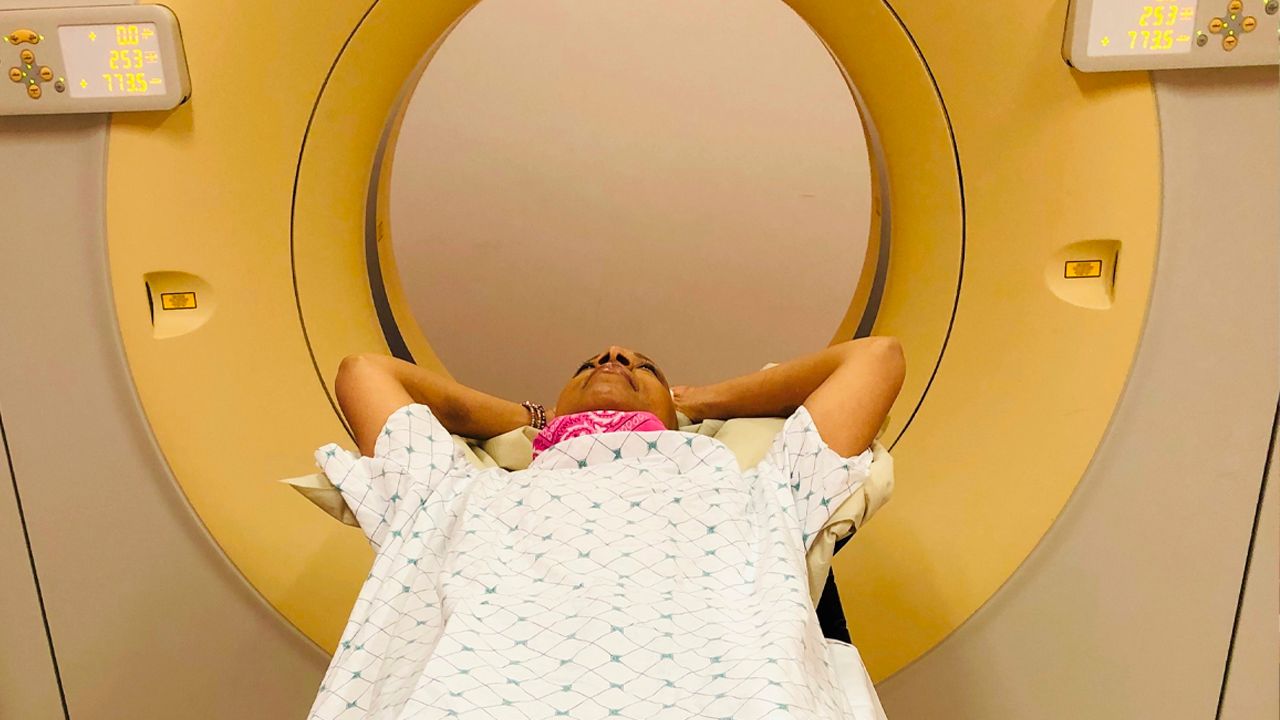
Breast MRIs aren’t recommended for all women because they’re more likely to find things that turn out not to be cancer but can trigger a false positive, according to the American Cancer Society. The organization also doesn’t recommend the MRI as a standalone detection tool because it can miss some cancers a mammogram would find.
But the test is known to help detect cancer cells or tumors in women who have dense breast tissue, like Hughes. Between 40-50% of women age 40 and over have dense breasts on the mammogram, Brown said.
Women should have a conversation with a healthcare provider about their personal risk of breast cancer by age 30. Women at average risk should begin screening with mammograms every year at age 40, Brown said, but she noted women at increased risk may need to start screening sooner than that.
Despite Thompson’s recommendation, the treatment wasn’t covered by her health insurance. With her physician’s help, Hughes petitioned her insurer, and they finally agreed.
“It was the Divine Intervention and the breast MRI that saved my life,” Hughes said. “Nothing had been detected in the mammogram. They caught it early thanks to the MRI, but it was aggressive. Had it gone undetected for a year or two, I’m not sure I’d be here today.”
A change of career and a newfound purpose
Following her clean bill of health, Hughes made a life decision to leave the news businesses and take a job “with a different purpose.”
After talking to several cancer-related organizations, she joined Cincinnati Cancer Advisors. It’s a consultative oncology practice that provides free oncology second opinions to nearly 400 cancer patients annually.
“It felt like all these years after my mom’s passing and me wishing there was something there that I could have done more for her, I now finally had that opportunity,” Hughes said.
Steve Abbott, the organization’s executive director, called Hughes a “great inspiration” for other people trying to battle cancer while doing their best to continue to live their life.
“Her own experience gives her an empathy for cancer patients and an understanding of what they are dealing with that makes her an important asset around our office, and she is in turn revered by her many fans for many of the same reasons,” Abbott said.
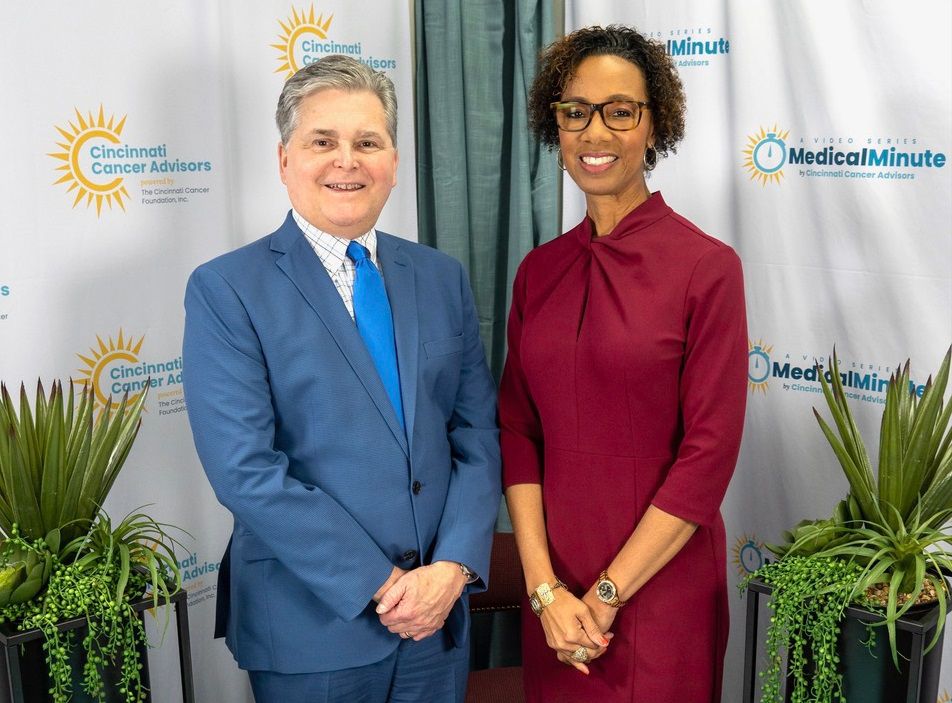
Patients at Cincinnati Cancer Advisors often receive referrals from their treating oncologist; sometimes they simply go there seeking a second opinion.
A team of clinical, pathological and radiographic experts perform a review of a patient's clinical history, physical findings, radiographic images and pathological slides.
The organization spends a minimum of two hours with the patient to make sure they fully understand their diagnosis and treatment options.
After additional medical research — as much as six to eight hours, depending on the case — the organization’s physicians make recommendations to the patient’s treating oncologist, Hughes said.
“Everything we do is free to the patient,” Hughes added. “We don’t want insurance standing in the way of our ability to serve those who need us.”
Last year, Cincinnati Cancer Advisors saw patients diagnosed with more than 40 different cancer types. Many of those are breast cancer-related, as it’s the most common type of cancer. More than 290,000 new cases are expected in the United States alone this year, according to the National Cancer Institute.
In her role, Hughes works to help educate the public on cancer and the importance of early screenings. She appears on talk shows discussing the issues, and she’s heavily involved in the organization’s educational campaigns.
She specifically wants to be a voice for Black and minority women such as herself. Black women have a breast cancer mortality 40% higher than any other ethnicity, Hughes said.
“At the end of the day, cancer is cancer and more must be done to help everyone,” she said. “But knowing that for one reason or another, someone is not going to get the health care they need because of their race or income level or zip code, is not acceptable.”
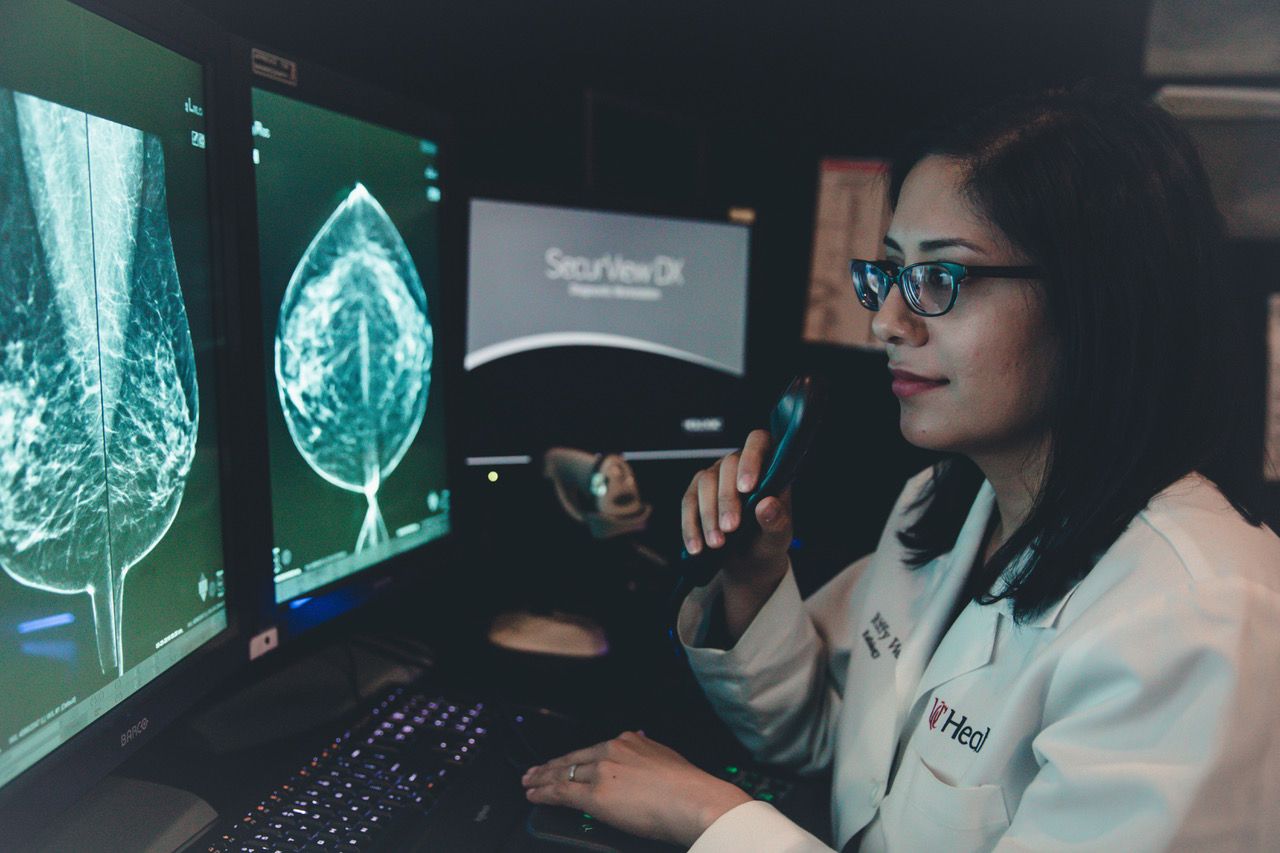
Through more detailed screening tools, such as 3D Mammograms, studies have shown cancer detection rates to improve by about 40%, Brown said.
In her new role, Hughes lobbied for the passage of Ohio House Bill 371 this year. Under the new law, insurance companies must cover additional advanced screenings for individuals who are at high risk for breast cancer or have dense breast tissue.
The bill passed with unanimous bipartisan support in June and Gov. Mike DeWine signed it into law shortly thereafter. It went into effect Sept. 23.
Brown was one of the medical experts behind the bill. She presented facts and figures on the importance of advanced screenings. But she feels testimonies from Hughes and others proved to be a “huge force” behind its passing.
“We all know someone who’s been diagnosed with breast cancer,” Brown said. “Having that sort of universal connection, and hearing from an individual who’s been down that road, is part of the reason that we were successful.”
Ohio is one of 14 states that provide some amount of coverage for supplemental breast cancer screening in women with dense breasts.
“As a cancer survivor, you take it one day at a time,” Hughes said. “But I know today, I’m in a place where my cup is running over. I’m blessed to be here and able to help other people in a position of need and hopefully to save someone else’s mom.”



